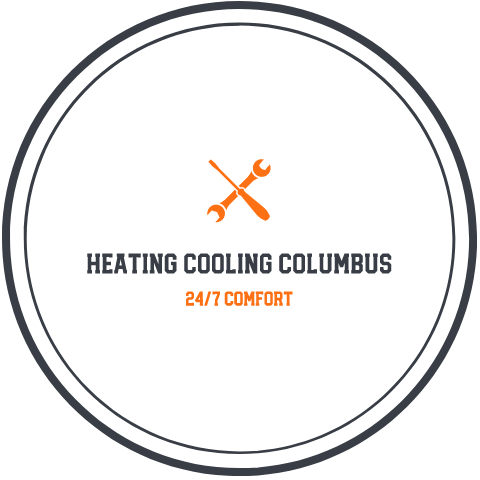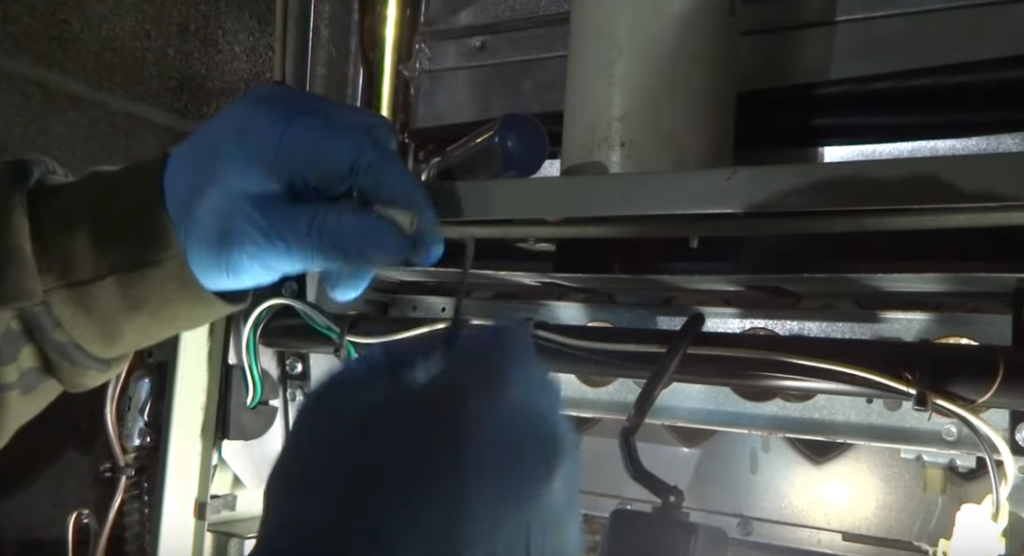Why New Albany Homeowners Should Invest in Energy-Efficient Heating and Air Systems
Are you a homeowner in New Albany, Ohio looking to upgrade your heating and air systems? Investing in energy-efficient options is the way to go. With rising energy costs and the environment, opting for energy-efficient systems saves you money.
You can enjoy lower monthly utility bills by choosing energy-efficient heating and air systems. These systems are designed to operate optimally, using less energy to provide the same comfort level in your home. From advanced air conditioning and furnace technologies to smart thermostats, these systems offer greater control over indoor climate, enhancing overall comfort and convenience.
Energy-efficient systems are environmentally friendly. They consume less energy, and they produce fewer emissions. So, why wait? Make the smart choice for your home and the planet by investing in energy-efficient heating and air systems in New Albany, Oh. Say hello to a more comfortable, cost-effective home.

The importance of energy-efficient heating and air systems
Energy-efficient heating and air systems play a pivotal role in the comfort and efficiency of your home. Traditional heating and air systems often consume significant energy, resulting in high utility bills. By investing in energy-efficient options, homeowners can significantly reduce their energy consumption to save money.
Energy-efficient furnaces and air conditioning systems are designed to operate optimally, using less energy to provide the same comfort level. These systems utilize advanced technologies such as variable-speed compressors, which adjust the cooling and heating output based on the specific needs of your home. This not only ensures maximum comfort but also minimizes energy wastage.
Energy-efficient systems offer greater control over your indoor climate. With features like programmable thermostats and zoning capabilities, you can customize the temperature in different areas of your home, reducing energy usage in unused spaces. This level of control enhances comfort and allows you to save even more on your energy bills.
Additionally, energy-efficient systems provide consistent and reliable performance. They are built to last longer and require less maintenance than traditional systems, which means fewer repair costs and a higher return on investment for homeowners.

Benefits of energy-efficient heating and air systems

Lower energy bills
Improved comfort
Enhanced indoor air quality
Energy-efficient systems are designed to improve indoor air quality by effectively filtering dust, allergens, and pollutants. This can significantly benefit those with respiratory conditions or allergies.
Reduced environmental impact
Long-term savings
Government incentives and rebates
Energy-efficient heating and air system options
High-efficiency furnaces
High-efficiency furnaces utilize advanced technology and pull more heat from the fuel they burn, resulting in greater energy efficiency. These furnaces are designed to provide consistent and reliable heating while minimizing energy wastage.
Heat pumps
Heat pumps are versatile systems that can provide both heating and cooling. They use electricity to move heat from one space to another rather than directly generating heat, making them highly efficient and cost-effective.
Ductless mini-split systems
Ductless mini-split systems are excellent options for homeowners who want to control the temperature in individual rooms or home areas. These systems have a single outdoor unit connecting to one or more indoor units, allowing zoned heating and cooling.
Geothermal heat system
Geothermal heat pumps use the earth’s constant temperature for heating and cooling efficiently. These systems are highly efficient and environmentally safe, using renewable energy sources.
Smart thermostats
Smart thermostats are great additions to energy-efficient heating and air systems. These thermostats allow you to control your indoor climate remotely and program temperature settings based on your schedule. They can significantly reduce energy wastage and save you money.
Factors to consider when choosing an energy-efficient system
Energy efficiency ratings
Look for systems with high energy efficiency ratings. Seasonal Energy Efficiency Ratio (SEER) and Annual Fuel Utilization Efficiency (AFUE) ratings are used to measure the proper efficiency of your heating and cooling system.
System size
Ensure your chosen system is the proper size for your home. An oversized or undersized system can lead to inefficiencies and discomfort. Professional HVAC contractors can calculate load to determine your home's ideal system size.
Advanced features
Consider systems with advanced features such as variable-speed compressors, programmable thermostats, and zoning capabilities. These features can significantly enhance comfort and energy efficiency.
Maintenance requirements
Look for systems that have low maintenance requirements. Regular maintenance is imperative for optimal performance and longevity of your heating and air system.
Warranty
Check warranties offered by the manufacturer. A more extended warranty period indicates the manufacturer's confidence in the durability and quality of their product. Considering all these factors, you can make informed decisions and choose an energy-efficient system that meets your needs.
Cost savings of energy-efficient systems

Lower energy bills
Energy-efficient systems consume less energy, lowering monthly utility bills. Over time, these savings can add up, offsetting the initial investment.
Maintenance expenses minimized
Significantly lower your maintenance costs with our solution freeing up resources for other important aspects of your business. Energy-efficient systems are often designed with durability in mind, resulting in fewer breakdowns and repairs, which saves you money on repair and maintenance costs over the system's lifespan.
Government incentives and rebates
Governments and utility companies typically offer incentives and rebates for installing energy-efficient systems. The Incentives help offset the initial cost and make the investment more affordable.
Increased home value
Energy-efficient upgrades can increase the value of your home. Potential buyers are often willing to pay more for homes with energy-efficient features, resulting in a higher resale value
Government incentives and rebates for energy-efficient systems
Many utility companies and governments offer incentives and rebates for homeowners to invest in energy-efficient heating and air systems. Incentives can offset the initial costs and make the transition to energy-efficient systems much more affordable. Here are some common incentives and rebates.
1. Tax credits: Some governments offer tax credits for homeowners who install energy-efficient systems. Tax credits reduce your tax liability and make the investment more financially feasible.
2. Rebates: Utility companies often offer rebates for homeowners who upgrade to
energy-efficient systems. These rebates can be in the form of cash incentives or reduced energy rates.
3. Grants: In some instances, homeowners may be eligible for grants to cover a
portion of the cost of energy-efficient upgrades. Government agencies or
non-profit organizations often provide these types of grants.
4. Loan programs: Some governments offer low-interest loan programs for
energy-efficient upgrades. These loans can help homeowners finance the system’s upfront cost and pay it off over time.

It’s essential to research the incentives and rebates available in your area and please take advantage of them when investing in energy-efficient heating and air systems. These incentives can significantly reduce the financial burden and make the transition more affordable.
How energy-efficient systems contribute to a sustainable environment
Energy-efficient heating and air systems are crucial in creating a sustainable environment.
These systems contribute to a cleaner and healthier planet by reducing energy consumption and greenhouse emissions. Here’s how energy-efficient systems make a positive impact:
One of the benefits of adopting environmentally friendly practices Energy-efficient systems consume less energy, producing fewer greenhouse gas emissions.
Conservation of natural resources
Energy-efficient systems require less energy, reducing the demand for other non-renewable resources. This helps conserve these valuable natural resources for future generations.
Encouraging renewable energy
Energy-efficient systems can easily integrate with renewable energy sources, including solar panels or geothermal systems. By utilizing renewable energy, homeowners can reduce their dependence on fossil fuels, contributing to a more sustainable energy future.
Improved indoor air quality
Energy-efficient systems are designed to filter out dust, allergens, and pollutants, which result in improved indoor air quality. Excellent indoor air quality benefits homeowners' health and well-being and reduces environmental impact
The role of energy-efficient systems in maintaining indoor air quality
Indoor air quality is an obvious concern for most homeowners, especially those with respiratory conditions or allergies. Energy-efficient heating and air systems are crucial in maintaining optimal indoor air quality. Here’s how these systems contribute to healthier indoor environments:
1. Effective filtration: Energy-efficient systems have advanced filtration systems that effectively capture dust, allergens, and pollutants. This filtration helps improve indoor air quality by reducing particles in the air that can trigger allergies or respiratory issues.
2. Humidity control: Energy-efficient systems often have built-in humidity control features. Proper humidity levels are essential for maintaining a healthy indoor environment and preventing the growth of mold and mildew.
3. Ventilation: Energy-efficient systems can be integrated with ventilation systems to ensure proper air circulation throughout the home. Proper ventilation helps remove stale air and bring fresh outdoor air, improving indoor air quality.
4. Reduced emissions: Energy-efficient systems produce less greenhouse gases than traditional systems, benefiting the environment and reducing harmful air pollutants. Investing in energy-efficient heating and air systems creates a healthier indoor environment for you and your family.
